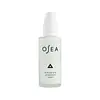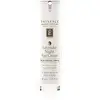What's inside
What's inside
 Key Ingredients
Key Ingredients

 Benefits
Benefits

 Concerns
Concerns

 Ingredients Side-by-side
Ingredients Side-by-side

Water
Skin ConditioningAlgae Extract
EmollientCoco-Caprylate/Caprate
EmollientMacadamia Ternifolia Seed Oil
EmollientSorbitan Olivate
EmulsifyingCetearyl Glucoside
EmulsifyingButyrospermum Parkii Butter
Skin ConditioningSimmondsia Chinensis Seed Oil
EmollientPersea Gratissima Oil
Skin ConditioningTocopherol
AntioxidantCalendula Officinalis Flower Extract
MaskingLysine Lauroyl Methionate
Skin ConditioningXanthan Gum
EmulsifyingGinkgo Biloba Leaf Extract
Skin ConditioningChamomilla Recutita Flower Extract
MaskingLavandula Angustifolia Oil
MaskingPelargonium Graveolens Oil
MaskingMagnesium Aluminum Silicate
AbsorbentCitrus Grandis Peel Oil
MaskingPotassium Sorbate
PreservativeGlycine
BufferingWater, Algae Extract, Coco-Caprylate/Caprate, Macadamia Ternifolia Seed Oil, Sorbitan Olivate, Cetearyl Glucoside, Butyrospermum Parkii Butter, Simmondsia Chinensis Seed Oil, Persea Gratissima Oil, Tocopherol, Calendula Officinalis Flower Extract, Lysine Lauroyl Methionate, Xanthan Gum, Ginkgo Biloba Leaf Extract, Chamomilla Recutita Flower Extract, Lavandula Angustifolia Oil, Pelargonium Graveolens Oil, Magnesium Aluminum Silicate, Citrus Grandis Peel Oil, Potassium Sorbate, Glycine
Bambusa Vulgaris Extract
Skin ConditioningOryza Sativa Extract
AbsorbentCamellia Sinensis Leaf Extract
AntimicrobialVitis Vinifera Seed Oil
EmollientCalendula Officinalis Flower Oil
MaskingPrunus Armeniaca Kernel Oil
MaskingJasminum Sambac Flower Extract
MaskingHoney
HumectantMaltodextrin
AbsorbentGlycerin
HumectantZea Mays Silk Extract
Skin ConditioningHeptyl Glucoside
Cetearyl Alcohol
EmollientSodium Cetearyl Sulfate
CleansingButyrospermum Parkii Butter
Skin ConditioningZea Mays Oil
EmulsifyingCaesalpinia Spinosa Gum
Skin ConditioningCaprylic/Capric Triglyceride
MaskingSecale Cereale Seed Extract
AbrasiveGlyceryl Stearate
EmollientTocopherol
AntioxidantArgania Spinosa Kernel Oil
EmollientBenzyl Alcohol
PerfumingDehydroacetic Acid
PreservativeMethyl Glucose Sesquistearate
EmollientXanthan Gum
EmulsifyingLavandula Angustifolia Oil
MaskingDimethyl Isosorbide
SolventHydrolyzed Sesame Seed Extract
Skin ConditioningArgania Spinosa Sprout Cell Extract
Skin ConditioningIsomalt
HumectantSodium Salicylate
PreservativeLactic Acid
BufferingCalcium Ascorbate
AntioxidantLecithin
EmollientCitrus Limon Fruit Extract
MaskingMalpighia Emarginata Fruit Extract
Skin ConditioningPhyllanthus Emblica Fruit Extract
HumectantAdansonia Digitata Seed Oil
EmollientCamphor
MaskingDaucus Carota Sativa Root Extract
Skin ConditioningCocos Nucifera Water
MaskingLycium Barbarum Fruit Extract
AstringentTapioca Starch
Thioctic Acid
AntioxidantBambusa Vulgaris Extract, Oryza Sativa Extract, Camellia Sinensis Leaf Extract, Vitis Vinifera Seed Oil, Calendula Officinalis Flower Oil, Prunus Armeniaca Kernel Oil, Jasminum Sambac Flower Extract, Honey, Maltodextrin, Glycerin, Zea Mays Silk Extract, Heptyl Glucoside, Cetearyl Alcohol, Sodium Cetearyl Sulfate, Butyrospermum Parkii Butter, Zea Mays Oil, Caesalpinia Spinosa Gum, Caprylic/Capric Triglyceride, Secale Cereale Seed Extract, Glyceryl Stearate, Tocopherol, Argania Spinosa Kernel Oil, Benzyl Alcohol, Dehydroacetic Acid, Methyl Glucose Sesquistearate, Xanthan Gum, Lavandula Angustifolia Oil, Dimethyl Isosorbide, Hydrolyzed Sesame Seed Extract, Argania Spinosa Sprout Cell Extract, Isomalt, Sodium Salicylate, Lactic Acid, Calcium Ascorbate, Lecithin, Citrus Limon Fruit Extract, Malpighia Emarginata Fruit Extract, Phyllanthus Emblica Fruit Extract, Adansonia Digitata Seed Oil, Camphor, Daucus Carota Sativa Root Extract, Cocos Nucifera Water, Lycium Barbarum Fruit Extract, Tapioca Starch, Thioctic Acid
Ingredients Explained
These ingredients are found in both products.
Ingredients higher up in an ingredient list are typically present in a larger amount.
This ingredient is also known as shea butter. It is an effective skin hydrator and emollient.
Emollients help soothe and soften your skin. It does this by creating a protective film on your skin. This barrier helps trap moisture and keeps your skin hydrated. Emollients may be effective at treating dry or itchy skin.
Shea butter is rich in antioxidants. Antioxidants help fight free-radicals, or molecules that may harm the body. It is also full of fatty acids including stearic acid and linoleic acid. These acids help replenish the skin and keep skin moisturized.
While Shea Butter has an SPF rating of about 3-4, it is not a sunscreen replacement.
Shea butter may not be fungal acne safe. We recommend speaking with a professional if you have any concerns.
Learn more about Butyrospermum Parkii ButterLavandula Angustifolia Oil is more commonly known as lavender essential oil. It is considered a fragrancing ingredient.
Lavender imparts a famous scent. While the smell is lovely, this ingredient and may sensitize skin in topical products. This is because about 85% of the oil is made up of linalool and linalyl acetate.
When exposed to air, these two compounds become strong allergens. This ingredient exhibits cytotoxicity at low concentrations; amounts of 0.25% have been shown to damage skin cells.
A study from Japan found this ingredient caused lavender sensitivity after widespread exposure.
Lavender essential oil has some antimicrobial, antibacterial, and anti-inflammatory properties. However, the cons of this ingredient may outweight the pros.
More research is needed to confirm lavender essential oil's effects when used in aromatherapy.
Lavandula Angustifolia is known as the English Lavender and famous for creating purple fields in Provence, France.
Learn more about Lavandula Angustifolia OilTocopherol (also known as Vitamin E) is a common antioxidant used to help protect the skin from free-radicals and strengthen the skin barrier. It's also fat soluble - this means our skin is great at absorbing it.
Vitamin E also helps keep your natural skin lipids healthy. Your lipid skin barrier naturally consists of lipids, ceramides, and fatty acids. Vitamin E offers extra protection for your skin’s lipid barrier, keeping your skin healthy and nourished.
Another benefit is a bit of UV protection. Vitamin E helps reduce the damage caused by UVB rays. (It should not replace your sunscreen). Combining it with Vitamin C can decrease sunburned cells and hyperpigmentation after UV exposure.
You might have noticed Vitamin E + C often paired together. This is because it is great at stabilizing Vitamin C. Using the two together helps increase the effectiveness of both ingredients.
There are often claims that Vitamin E can reduce/prevent scarring, but these claims haven't been confirmed by scientific research.
Learn more about TocopherolXanthan gum is used as a stabilizer and thickener within cosmetic products. It helps give products a sticky, thick feeling - preventing them from being too runny.
On the technical side of things, xanthan gum is a polysaccharide - a combination consisting of multiple sugar molecules bonded together.
Xanthan gum is a pretty common and great ingredient. It is a natural, non-toxic, non-irritating ingredient that is also commonly used in food products.
Learn more about Xanthan Gum